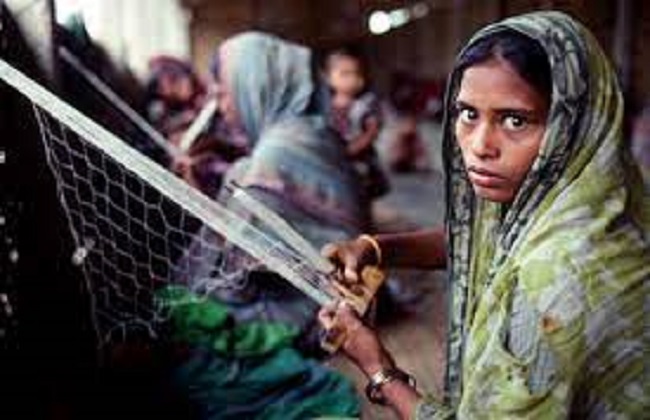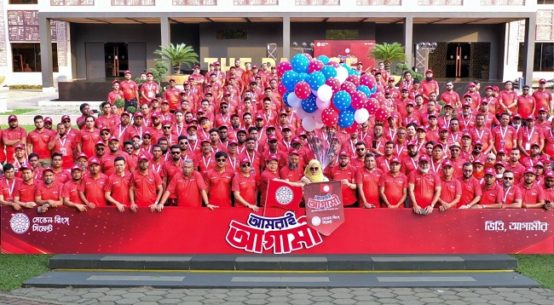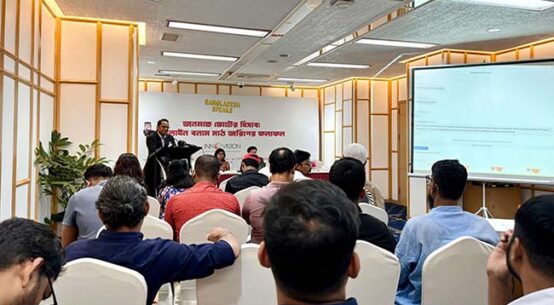
Experts at a webinar Thursday observed that product diversification, technology adaptation, policy reforms and domestic market development are essential to face post-LDC challenges.
They made the observation at the webinar on “LDC graduation of Bangladesh: Transformation and preparedness” held on the 3rd day of ‘Bangladesh Trade and Investment Summit 2021’, said a press release.
The discussants identified some issues, including technology adaptation, technology transfer, equal treatment to all export-oriented industries, tariff rationalization, competitiveness in export diversification, skill development, investing in research and innovation, policy reforms, tax incentives, FDI attraction and competitive tax structure, to become prepared for LDC graduation.
Dr Ahmad Kaikaus, principal secretary to the Prime Minister, was the chief guest while DCCI President Rizwan Rahman chaired and moderated the session.
Dr Kaikaus said 81 percent of the GDP that comes from the private sector reflects the strength of its vibrancy.
“We have to facilitate private sector and have to make a strong bond between the public and private sector as private sector plays the major role in the economic transformation in the country. Entrepreneurs of Bangladesh are very hard-working and resilient,” he said.
Syed Manzur Elahi, chairman, Apex Group and former Adviser to the Caretaker Government said that many people always talks about export diversification, but it is not happening in reality.
He said, “We have to create jobs that helps alleviate poverty and it is the duty of private sector to create jobs. For creating jobs, country needs industries. Due to our skill shortages, thousands of foreign workers are working in Bangladesh and remit about USD 5 billion every year. Leather sector is a highly labour intensive, capital intensive and this sector has a huge scope of technology adaptation.”
Citing an example of Vietnam in the leather footwear industry, he said Bangladesh and Vietnam stepped into this sector at the same time but Vietnam is now exporting footwear worth of US$16 to $17 billion whereas Bangladesh is stuck around $1 billion.
He said joint ventures in the leather footwear sector will strengthen this sector in Bangladesh.
He urged for a separate economic zone especially for leather footwear industry.
He sought equal treatment and facilities for all export-oriented industries like RMG sector.
Tapan Kanti Ghosh, secretary, Ministry of Commerce, in his introductory remarks said every graduating economy undergoes a transitional process with a deep aspiration of renewed economic journey.
Upon graduation, Bangladesh will come across some key challenges including loss of duty-free quota-free facility, increased tariff rates, technological adaptation, increased competition at both local and international market, standard and quality, stringent rules of origins, skills upgradation and trade and industrial compliance issues, he added.
Alongside, he said, the graduation will also generate ample of opportunities in many respects including private sector development, enriched industrial base, investment and trade growth and local market expansion and so on.
Moderator of the session, Rizwan Rahman said technology transfer is no longer a choice but a necessity now.
He said Bangladesh’s economic condition is quite resilient and progressive that after the graduation, the country will be able to make its position stronger.
But before that the first and foremost thing is to ensure product diversification in the export basket and technology adaptation as well as domestic market development, he said.
And for product diversification, he suggested to provide all facilities to the export oriented industries that the RMG sector is availing now.


